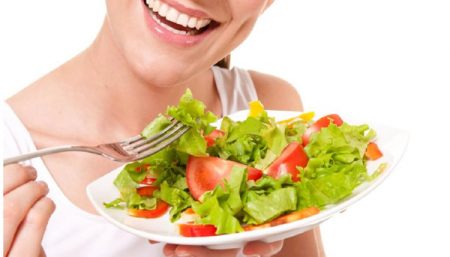
Bloating is a condition characterized by a feeling of unnatural fullness, also caused by the accumulation of air in the stomach of elsewhere in the abdomen. Because of this accumulation, food, drink and other substances tend to move more slowly through the gut, leading to a perception of fullness or, ‘gas’!
Some people suffer from an inability to digest milk and milk products because of a lack of lactase, an enzyme needed to digest the sugar in milk known as lactose. The problem is known as “lactose intolerance”, and one of its symptoms is bloating.
Prevention strategies
- Increase your consumption of dietary fibre: this will bulk up stools and help them to move faster through the colon. Slowly add more and more fiber to your diet.
- Follow the order: Fruit and vegetables take 20-30 minutes to digest whereas meat can take hours. Eating fruit last (as dessert) means it gets stuck behind the meat going through the digestive system and you can feel quite uncomfortable. The best order is fruit (appetizer or salad), then carbs, then meat.
- If you’re lactose-intolerant, reduce your intake of milk. (You don’t usually need to cut out dairy products altogether: most lactose-intolerant people can tolerate small amounts of milk and dairy products, particularly if the milk is part of meal.)
- Drink enough Water, but not excessive during meal times as this actually dilutes digestive juices, and hamper digestion.
- Reduce the number of fizzy drinks you consume each day. Try some peppermint tea for a soothing beverage that may help reduce bloat.
- Whole milk causes fewer problems than skim because its fat slows the rate of stomach emptying.
- Fermented milk products such as yogurt are the best alternative dairy products to milk since they contain only small amounts of the offending sugar, lactose. And the bacteria in yogurt help to break down what milk sugar there is.
- Hard or aged cheese should also be okay since most lactose is removed when the cheese is made.
- Eating pineapple can help ease bloating. This tropical fruit is high in the enzyme bromelain, which helps break down protein and eases digestion, helping to banish the bloat. Other foods for easing bloating are peppermint tea, ginger, parsley etc
- Slow down when you eat, and really chew your food. One cause of bloating could be that you’re swallowing too much air when you’re scarfing down your meals; this is why some of us get the hiccups when eating too quickly.
- Try the herbs: Fennel, Pulsatilla Vulgaris, Artemisia dracunculus, Carom (Ajwain) seeds are known as a digestive aids. They not only improves digestion, but help reduce bad breath and body odor that originates in the intestines.
- Aim for physical activity for at least 30 minutes, five times a week.
- Yoga in daily life can help enhance digestion and help keep away bloating. Cobra, Spinal twist, hero pose are. some of yoga asanas to enhance digestion.
- Avoid excess intake of processed food in order to avoid excess sugar and salt ingestion. Shoot for no more than 500 mg of sodium per serving in any product — or a total of 1,500 to 2,300 mg of sodium per day. Experts recommend consuming no more than 2 or 3 servings of artificially sweetened foods and drinks per day.
- Do not skip meals.
NOTE: If you cut down drastically on milk and dairy products, remember to keep up your intake of calcium by eating other foods that contain this nutrient: good sources are fish bones, salmon, green leafy vegetables and bean curd. In addition, you may need a calcium supplement; talk to your doctor.
When to see a doctor
- If you suffer severe cramps as a result of the bloating, your doctor can prescribe anti-spasmodic drugs.
Disclaimer
The Content is not intended to be a substitute for professional medical advice, diagnosis, or treatment. Always seek the advice of your physician or other qualified health provider with any questions you may have regarding a medical condition.


